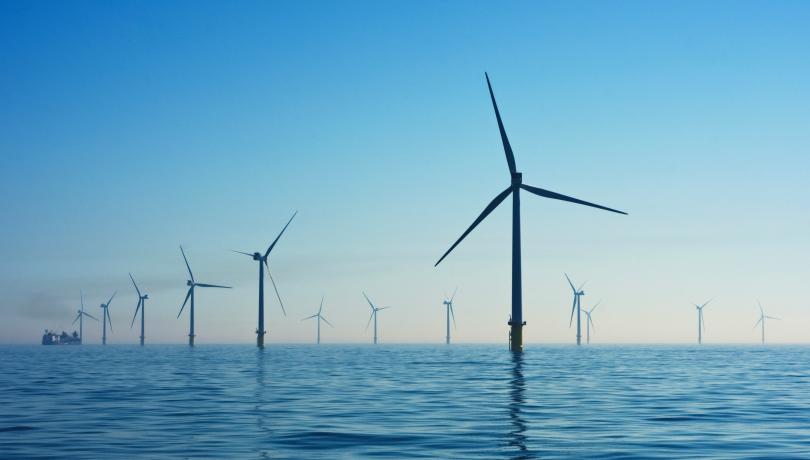This is being done through NID4OCEAN, an initiative funded under Horizon Europe’s ‘Restore our Ocean and Waters’ mission that unites 13 partners from 8 countries.

The Institut de Ciències del Mar (ICM-CSIC), the Centre d’Estudis Avançats de Blanes (CEAB-CSIC) and the Universitat Politècnica de Catalunya (UPC) participate to a new innovative project led by the Norwegian Institute for Water Research (NIVA), NiD4OCEAN, that addresses a crucial global challenge: how to expand offshore renewable energy while protecting marine biodiversity.
This three-year project, funded under Horizon Europe’s ‘Restore our Ocean and Waters’ mission, unites 13 partners from 8 countries and will run from until 2027, with a budget of more than 2 million euros.
The project targets the North Sea, Baltic Sea, and Western Mediterranean as case studies, to advance the knowledge on nature-inclusive designs (NID) and nature-based solutions (NBS) for offshore renewable infrastructure. NIDs refers to options that can be integrated into, or added to, the design of an anthropogenic structure to enhance ecological functioning, whereas NBS are tools to leverage nature and the power of healthy ecosystems to protect people, optimise infrastructure and safeguard a stable and biodiverse future.
The project involves 13 partners from Denmark, Germany, Lithuania, the Netherlands, Norway, Spain, Portugal, and the UK, representing research institutes, universities, environmental NGOs, non-profit organizations and the energy industry. The CSIC team is composed of marine biologists, oceanographers and socioecologists from the Institut de Ciències del Mar (ICM-CSIC) and the Centre d’Estudis Avançats de Blanes (CEAB-CSIC), whereas the UPC incorporates engineers with expertise in offshore energy systems.
“The expansion of offshore renewables, which are needed to meet the ambitious decarbonization objectives of the European Union, should not conflict with biodiversity preservation goals, such as the EU's biodiversity strategy for 2030” states the ICM-CSIC researcher Josep Lloret.
“This expansion should neither be detrimental to the livelihoods of local communities, who may be negatively impacted by the offshore energy projects”, points out the CEAB-CSIC researcher Rafael Sardà, who adds that “NiD4OCEAN will allow us to dive into the emerging field of nature-inclusive designs for offshore renewables, particularly for offshore wind, exploring their effectivity and applicability to different European ecoregions”.
According to Lloret and Sardá, “First, offshore wind farm plans and projects should avoid areas of high biodiversity value through meticulous marine and maritime spatial planning. Second, after these sensitive areas have been excluded from energy developments, NID should be explored to avoid and minimize the ecological and socioeconomic impacts that still may appear”.
Finally, the CSIC will foster the co-creation of novel designs through the Innovation Challenge Series in collaboration with UPC engineers.
“It is very important to incorporate the view of new generations that have been educated within the transdisciplinary environment. They can provide new and innovative solutions”, says Anna Mujal-Colilles, from the UPC.
All in all, through transdisciplinary collaboration, the project will provide practical, context-specific solutions for policymakers, industry leaders, and marine managers. For example, the project will address the lack of policy clarity and standards on what constitutes an appropriate NID for a given region and how to monitor its efficiency, which is currently a major hurdle for industry and consent managers.
*This project is funded by the European Union. Views and opinions expressed are however those of the author(s) only and do not necessarily reflect those of the European Union. Neither the European Union nor the granting authority can be held responsible for them.